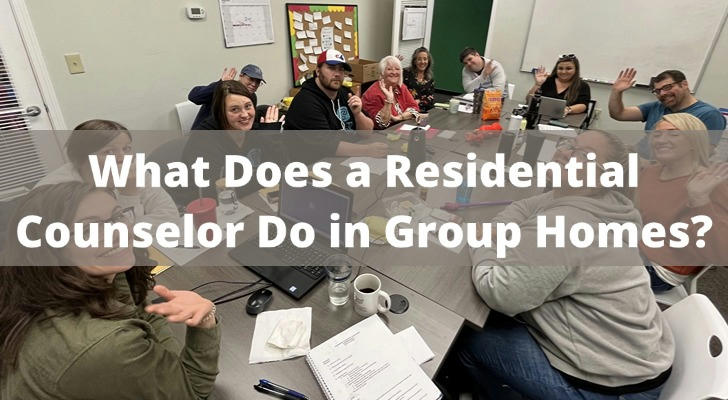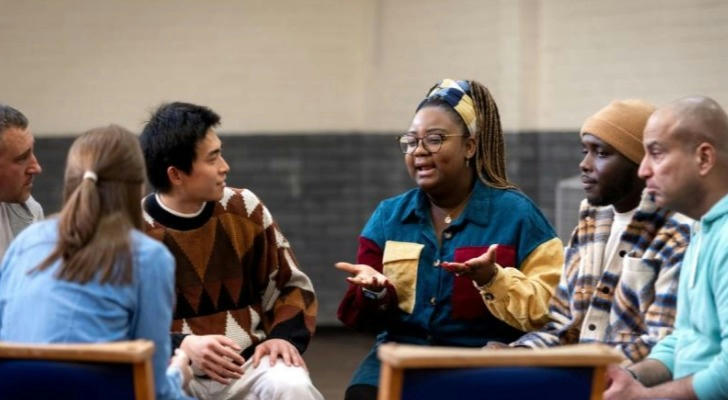What Does a Residential Counselor Do in Group Homes?
Residential counselors play an important role in group home settings, offering daily support and supervision to individuals who may be living with intellectual or developmental disabilities, mental health conditions, substance use recovery needs, or behavioral challenges. Their work ensures that residents live in a safe, structured, and supportive environment where they can develop essential life skills and maintain personal well-being.
This article explains what residential counselors do, where they work, the qualifications required, and what makes the role both demanding and rewarding. It is designed for readers interested in the practical aspects of this career path, whether for educational exploration or occupational preparation.

1. Core Responsibilities
Daily Living Support
A primary function of residential counselors is helping residents with basic daily activities. These may include:
- Preparing meals and supporting residents during mealtimes
- Assisting with personal hygiene, grooming, and dressing
- Helping manage household tasks like cleaning and laundry
- Ensuring medication is taken on schedule, in line with treatment plans
The goal is to foster independence, not dependency. Counselors often follow individualized service plans that encourage residents to build and maintain daily living skills.
Behavioral and Emotional Support
In group homes that serve residents with emotional or behavioral needs, counselors monitor behavior, de-escalate conflicts, and promote constructive communication. Techniques might include:
- Positive reinforcement strategies
- Conflict resolution and peer mediation
- Crisis intervention methods when necessary
Counselors also document incidents and behavioral patterns, which may be reviewed during team meetings or shared with clinicians and case managers.
Community Integration
Residential counselors may also assist residents in participating in community life. This can involve:
- Accompanying them to appointments
- Supporting them in using public transportation
- Encouraging participation in social, educational, or recreational activities
The emphasis is on building confidence and skills for broader societal participation.
2. Work Settings
Residential counselors typically work in a range of settings, such as:
- Group homes for adults with disabilities
- Youth residential treatment centers
- Substance use recovery facilities
- Transitional housing for individuals reentering society after incarceration
- Emergency housing programs for minors or vulnerable adults
The nature of the setting influences the counselor’s day-to-day responsibilities, safety protocols, and training requirements.
3. Skills and Personal Qualities
Not all skills for this role are learned in school. Many are developed through real-life experience and personal temperament. Core competencies include:
- Effective communication: For listening, giving instructions, and conveying empathy
- Patience and emotional resilience: Residents may have difficult moments or regressions
- Cultural competence: Group homes serve diverse populations; sensitivity to cultural and social differences is essential
- Observational skills: Noticing changes in mood, habits, or health can lead to early intervention
- Team collaboration: Counselors often work in shifts and rely on accurate documentation and team communication to ensure consistent care
4. Education and Training
Educational Requirements
Minimum educational requirements vary by employer and setting. Typically:
- A high school diploma or equivalent is required for entry-level positions
- Some employers prefer or require postsecondary education in human services, psychology, social work, or a related field
- Specialized settings (e.g., youth behavioral health) may require associate or bachelor’s degrees
Job-Specific Training
Most employers offer or require training in areas such as:
- First aid and CPR certification
- De-escalation and crisis management techniques
- Mandated reporter training (especially for minors or vulnerable adults)
- Medication administration protocols
- HIPAA and privacy laws
These training modules are often a condition of employment and may be renewed annually.

5. Certification and Licensing
While there is no universal license for residential counselors, certain states or roles may require:
- Registered Behavior Technician (RBT) certification (especially in autism support settings)
- Mental Health Technician certificates
- Background checks and fingerprint clearance
Specific licensing rules can vary by state or provider type. Local health or social service departments often publish detailed requirements.
6. Typical Work Schedules
Residential counselors may work:
- Full-time or part-time shifts
- Overnight, weekend, and holiday schedules
- Live-in or on-call arrangements in some residential treatment settings
This role often requires flexibility. Residential care is a 24-hour operation, so counselors are scheduled around the clock to ensure supervision and safety.
7. Compensation and Benefits
According to the U.S. Bureau of Labor Statistics (BLS), the median annual wage for psychiatric technicians and aides—which includes many residential counselor roles—was approximately $38,000 as of 2023. However, pay varies based on:
- Geographic region
- Experience level
- Type of population served
- Credentials and certifications
8. Career Advancement Opportunities
With experience, residential counselors can move into roles such as:
- Lead counselor or shift supervisor
- Case manager or program coordinator
- Behavioral health technician
- Training and compliance officer
- Clinical support staff (with additional education)
Furthering education in social work, counseling, or psychology can lead to licensed clinical roles in the human services field.
9. Common Challenges
While this work can be fulfilling, it also presents challenges:
- Emotional demands: Supporting residents in crisis can be emotionally intense
- Burnout risks: Long hours and irregular schedules may lead to fatigue
- Safety concerns: Dealing with unpredictable behaviors requires vigilance and training
- Documentation loads: Maintaining clear records is essential but time-consuming
Supportive supervision and regular training help many professionals manage these demands effectively.
10. The Impact of the Role
Though not always widely recognized, residential counselors have a significant influence on residents’ lives. They:
- Help individuals gain confidence and autonomy
- Create environments where people feel safe and respected
- Act as mentors, role models, and advocates
The day-to-day actions of a counselor—small as they may seem—contribute to long-term personal growth and community integration for residents.

Conclusion
A residential counselor in a group home is more than a caretaker—they are a stabilizing presence, a guide, and a vital contributor to the well-being of others. The role blends interpersonal skills with practical support, and it requires both compassion and discipline. For those considering a career in human services, this path offers both challenge and purpose through meaningful, hands-on work with individuals who benefit greatly from structure, empathy, and consistency.
Note: This article is provided for educational purposes only and is based on publicly available data. Always consult local regulations or official sources when exploring career requirements.
